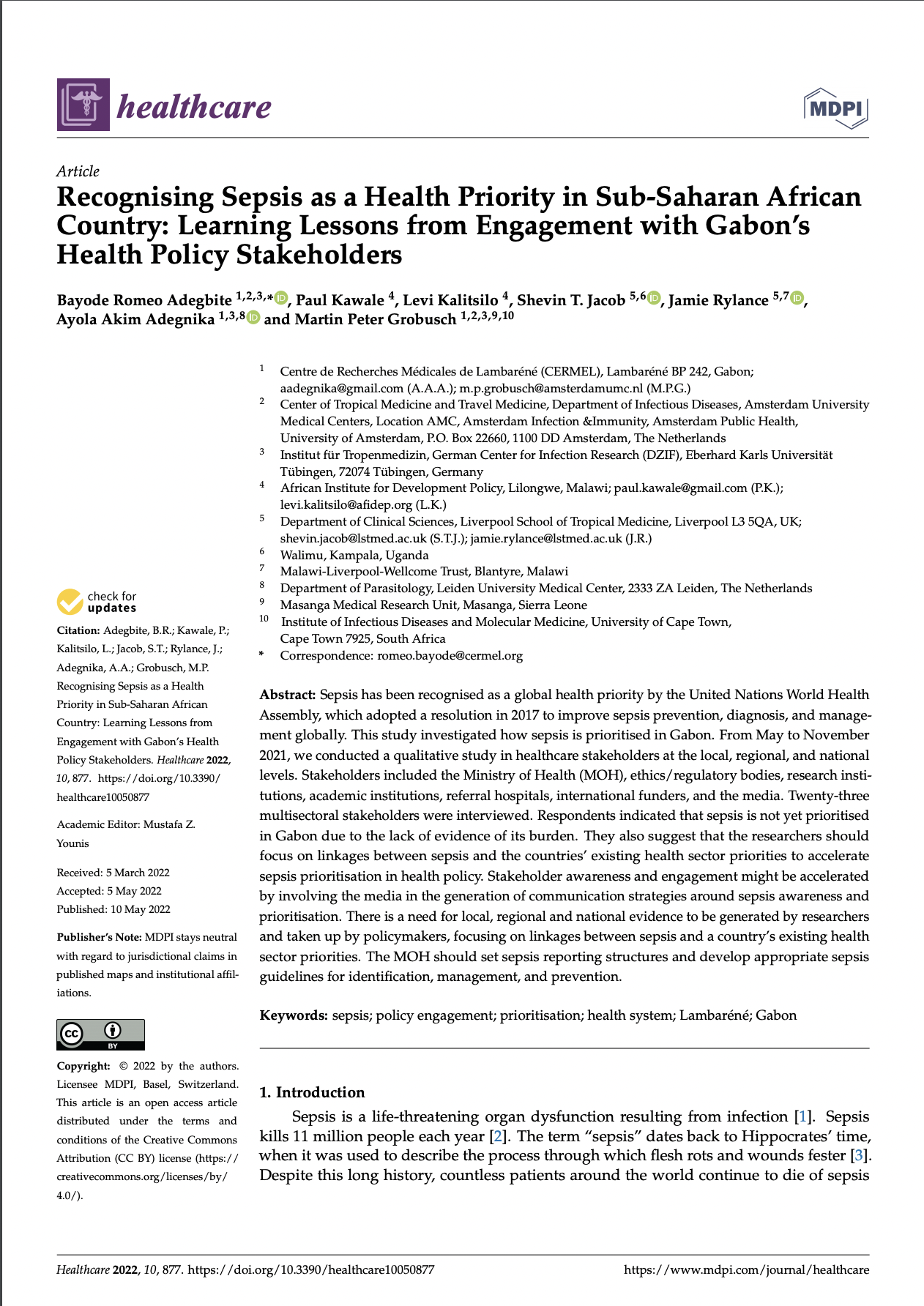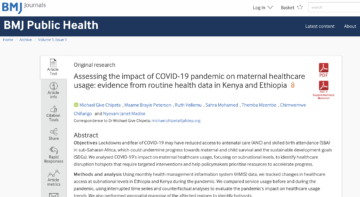
Sepsis has been recognised as a global health priority by the United Nations World Health Assembly, which adopted a resolution in 2017 to improve sepsis prevention, diagnosis, and management globally. This study investigated how sepsis is prioritised in Gabon. From May to November 2021, we conducted a qualitative study in healthcare stakeholders at the local, regional, and national levels. Stakeholders included the Ministry of Health (MOH), ethics/regulatory bodies, research institutions, academic institutions, referral hospitals, international funders, and the media. Twenty-three multisectoral stakeholders were interviewed. Respondents indicated that sepsis is not yet prioritised in Gabon due to the lack of evidence of its burden. They also suggest that the researchers should focus on linkages between sepsis and the countries’ existing health sector priorities to accelerate sepsis prioritisation in health policy. Stakeholder awareness and engagement might be accelerated by involving the media in the generation of communication strategies around sepsis awareness and prioritisation. There is a need for local, regional and national evidence to be generated by researchers and taken up by policymakers, focusing on linkages between sepsis and a country’s existing health sector priorities. The MOH should set sepsis reporting structures and develop appropriate sepsis guidelines for identification, management, and prevention.
Authors: Bayode Romeo Adegbite, Paul Kawale, Levi Kalitsilo, Shevin T. Jacob, Jamie Rylance, Ayola Akim Adegnika and Martin Peter Grobusch
Full-text link: https://www.mdpi.com/2227-9032/10/5/877/htm
Related Publications


